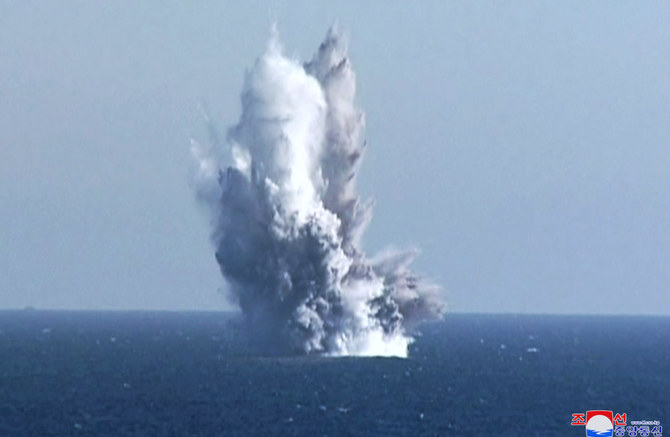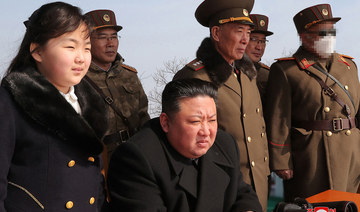SEOUL, South Korea: North Korea fired two short-range ballistic missile toward waters off its eastern coast Monday, adding to a recent flurry in weapons tests as the United States prepared to deploy an aircraft carrier strike group to neighboring waters to step up military exercises with the South.
South Korea’s Joint Chiefs of Staff said the missiles flew cross-country after being fired from a western inland area south of the North Korean capital of Pyongyang but didn’t immediately release specific flight details. Japan’s coast guard said it believed both weapons landed outside Japan’s exclusive economic zone.
The launches were the North’s seventh missile event this month and underscore heightening military tensions in the region as the pace of both North Korean weapons tests and the US-South Korea joint military exercises has accelerated in recent months in a cycle of tit-for-tat responses.
The allies last week completed an 11-day exercise that included their biggest field training in years. But North Korea is expected to further step up its testing activity as the United States moves an aircraft carrier group to the peninsula this week for another round of joint drills.
North Korea has fired more than 20 ballistic and cruise missiles across 11 launch events this year as it tries to force the United States to accept its nuclear status and negotiate a removal of sanctions from a position of strength.
North Korea’s launches this month included a flight-test of an intercontinental ballistic missile and a series of short-range weapons intended to overwhelm South Korean missile defenses as it tries to demonstrate an ability to conduct nuclear strikes on both South Korea and the US mainland.
The North last week conducted what it described as a three-day exercise that simulated nuclear attacks on South Korean targets as leader Kim Jong Un condemned the US-South Korean joint military drills as invasion rehearsals. The allies say the exercises are defensive in nature.
The North’s tests also included a purported nuclear-capable underwater drone that the North claimed is capable of setting off a huge “radioactive tsunami” that would destroy naval vessels and ports. Analysts were skeptical about the North Korean claims about the drone or whether the device presents a major new threat, but the tests underlined the North’s commitment to expand its nuclear threats.
Following the North’s announcement of the drone test on Friday, South Korea’s air force released details of a five-day joint aerial drill with the United States last week that included live-fire demonstrations of air-to-air and air-to-ground weapons. The air force said the exercise was aimed at verifying precision strike capabilities and reaffirming the credibility of Seoul’s “three-axis” strategy against North Korean nuclear threats — preemptively striking sources of attacks, intercepting incoming missiles and neutralizing the North’s leadership and key military facilities.
North Korea already is coming off a record year in weapons testing, launching more than 70 missiles in 2022, when it also set into law an escalatory nuclear doctrine that authorizes pre-emptive nuclear strikes in a broad range of scenarios where it may perceive its leadership as under threat.













